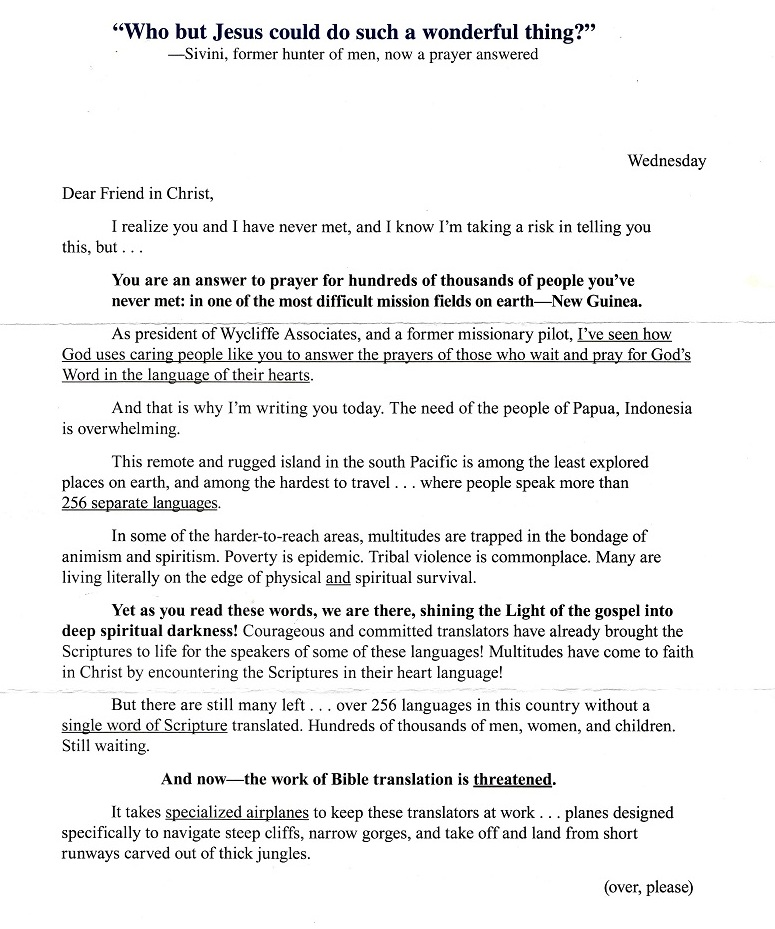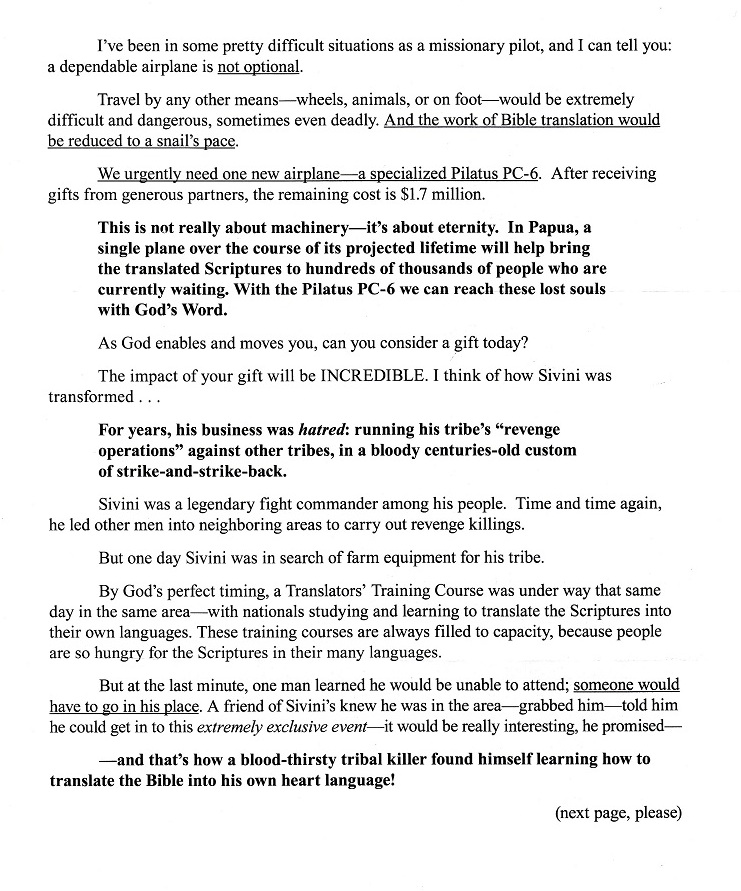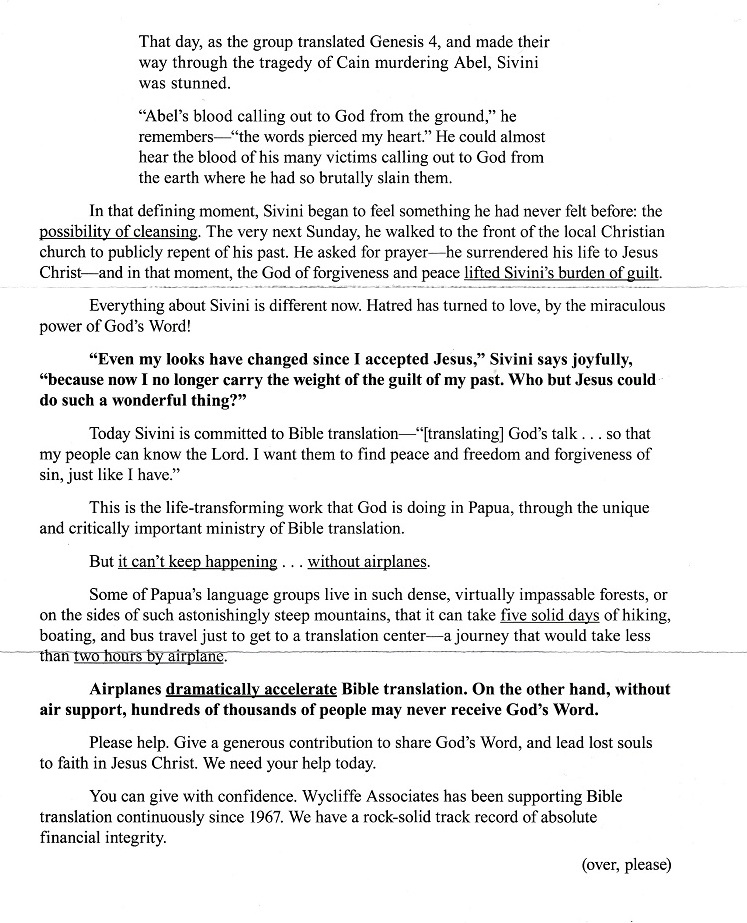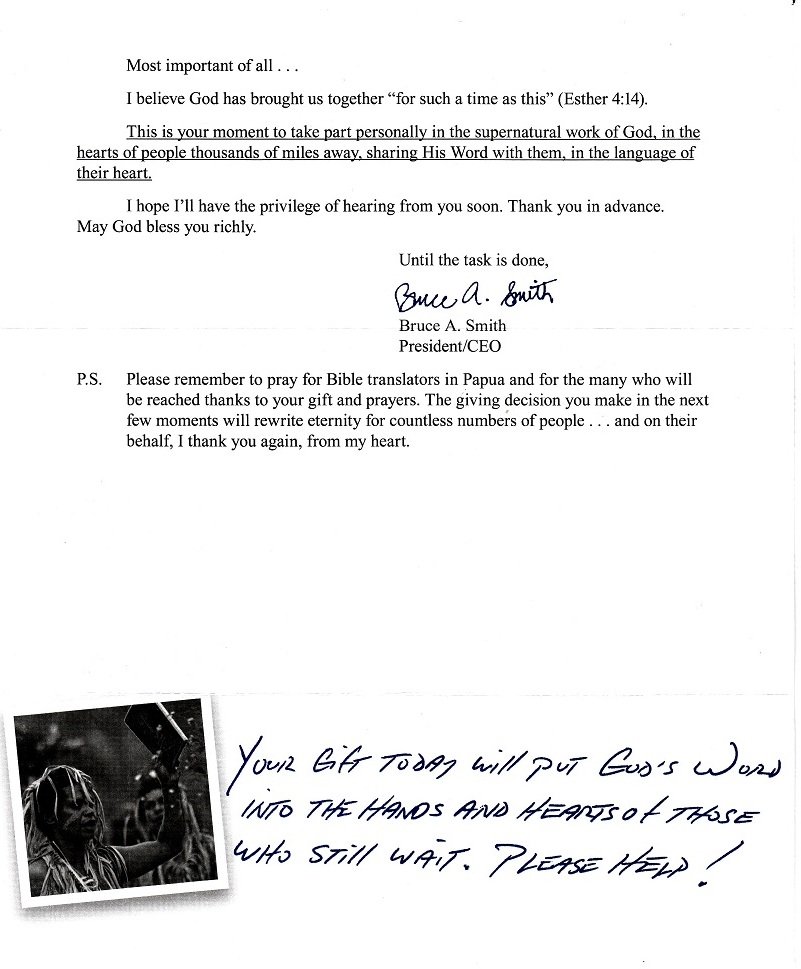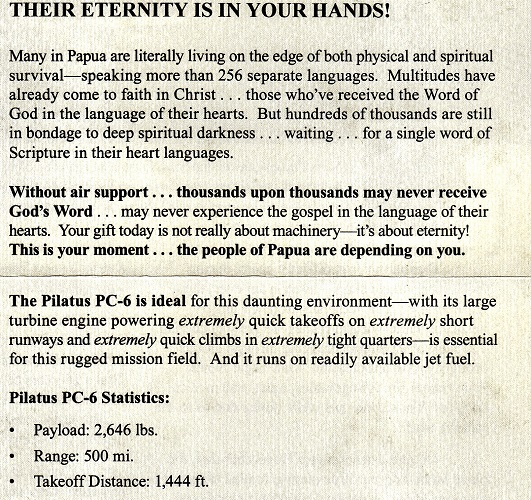Most of the religious charity solicitation letters that I get have identifiable humanitarian aims, as much as I might disagree with the religious message those aims are wrapped up in. But that isn’t the case for the latest specimen, which begs for money to advance a purely religious mission, without even a pretense of serving people’s actual needs. (See end of post for the full letter.)
This letter was from Wycliffe Associates, an evangelical missionary organization, and concerns the work they’re doing on the island of Papua (New Guinea) in Indonesia. In this rugged and remote land, they say: “Poverty is epidemic. Tribal violence is commonplace. Many are living literally on the edge of physical and spiritual survival.”
But Wycliffe isn’t asking for money for food aid, say, or medical assistance. No, they’re seeking a cool $1.5 million to buy an airplane to ferry missionaries around, so that they don’t have to hike over rugged jungle terrain on foot, and to speed up the work of translating the Bible into all the local languages:
We urgently need one new airplane – a specialized Pilatus PC-6.
…The Pilatus PC-6 is ideal for this daunting environment – with its large turbine engine powering extremely quick takeoffs on extremely short runways and extremely quick climbs in extremely tight quarters – is essential for this rugged mission field.
…This is not really about machinery – it’s about eternity. In Papua, a single plane over the course of its projected lifetime will help bring the translated Scriptures to hundreds of thousands of people who are currently waiting.
The letter displays an unsurprising racism, calling the native religions of Papua “the bondage of animism and spiritism” and saying that the people there live in “deep spiritual darkness”. Most condescending of all is its obligatory conversion anecdote concerning a Papuan man named Sivini, whom they call “a blood-thirsty tribal killer”:
For years, his business was hatred: running his tribe’s “revenge operations” against other tribes, in a bloody centuries-old custom of strike-and-strike-back.
…Sivini began to feel something he had never felt before: the possibility of cleansing. The very next Sunday, he walked to the front of the local Christian church to publicly repent of his past.
…Everything about Sivini is different now. Hatred has turned to love, by the miraculous power of God’s Word!
“Even my looks have changed since I accepted Jesus,” Sivini says joyfully, “because now I no longer carry the weight of the guilt of my past. Who but Jesus could do such a wonderful thing?”
Especially given its bizarre mention of Christian conversion changing someone’s appearance, I suspect that this anecdote is either highly exaggerated or substantially invented (how many people would be able to check, after all?). Notwithstanding the fact that this letter was sent to me, I’m sure that Wycliffe knows their target audience and what they want to hear before they open their wallets. Any details that don’t fit or weren’t present can be touched up as necessary to fit the “standard” evangelical narrative.
It’s true that tribal, hunter-gatherer societies tend to have higher rates of violence. But this is not, as this letter implies it is, because they worship the wrong gods. Rather, it’s because in a stateless society with no central authority, no law-making Leviathan, interpersonal feuds often spiral out of control into escalating cycles of revenge attacks.
This is basic to human nature, and it has little or nothing to do with religion. It can and does happen in Christian societies, sometimes famously so. Wycliffe’s delusive belief that this can be solved with missionaries and Bibles, rather than democratic development and building legitimate political institutions, at best ensures the violence will continue longer. At worst, it risks making the situation even worse by injecting an element of religious strife into an already divided and war-torn society.
